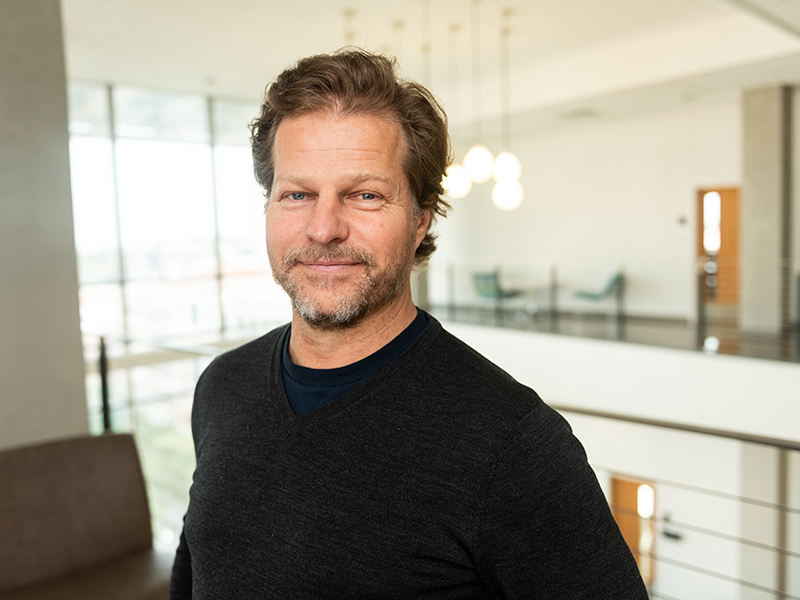
Brian Korgel, a professor in the McKetta Department of Chemical Engineering, will be the next director of the Energy Institute at The University of Texas at Austin, effective Sept. 1.
Korgel succeeds Varun Rai, associate dean of research at the LBJ School of Public Affairs, who has served as the institute’s director since 2019.
A nanomaterials scientist and member of the National Academy of Engineering, Korgel examines problems in energy storage, chemical transformations, energy harvesting and conversion, and medicine.
“Professor Korgel has a strong background in chemical engineering and has worked for many years to build collaborations between UT researchers, industry and government leaders, making him the ideal choice to head UT’s Energy Institute,” said interim Vice President for Research Alison Preston. “I look forward to working with him to strengthen the institute’s role as a catalyst for energy research on campus.”
Korgel is also the founding director of UT’s Industry/University Cooperative Research Center for Next-Generation Photovoltaics, which — among its numerous societal contributions — pairs researchers with industry leaders to develop the solar-integrated technologies needed to achieve a future with net-zero carbon emissions.
Moreover, he has been awarded 15 patents, and his work has spun off two energy technology startups, one of which was acquired by DuPont in 2011.
“This is an exciting time for energy research — there’s a serious global push to create a much more sustainable energy economy,” Korgel said. “New technologies are needed to get us there, and there are many UT researchers creating the innovations that are enabling and leading this transition. Energy research underlies both economic prosperity and long-term climate sustainability. It underlies people’s quality of life.”
Korgel received a doctorate in chemical engineering from the University of California, Los Angeles, where his interests in energy sustainability first took hold as he worked to develop ways to minimize chemical plant emissions. He served as a postdoctoral fellow at University College Dublin.
In addition to his significant contributions to energy sustainability, Korgel also dedicates time to fostering collaborations among artists, scientists and engineers. His own artwork explores collaboration, language and human artificial intelligence and robot cohabitation. His work has been featured most recently as part of the “Hear and Now” TEDx Drive-Thru Art Exhibition in Austin. He also has a passion for teaching, which includes hosting engineering study abroad sessions around the world — such as the Advanced Nanotechnology & Innovation Maymester he recently led in Copenhagen, Denmark.
The Energy Institute seeks to foster innovation, educate students and inform policy by promoting energy research and expertise from all departments and across all energy-related fields and topics at UT Austin.
“The work we do in the Energy Institute matters a lot to a lot of people, which makes leading it a really exciting and important challenge for me personally,” Korgel said. “I’m looking forward to it.”
